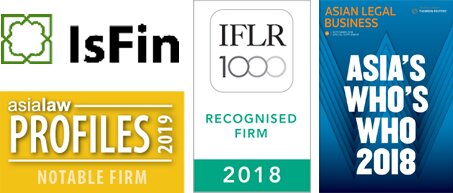Best Whistleblower & Qui Tam Lawyers in Taguig
Share your needs with us, get contacted by law firms.
Free. Takes 2 min.
List of the best lawyers in Taguig, Philippines
About Whistleblower & Qui Tam Law in Taguig, Philippines:
Whistleblower & Qui Tam laws in Taguig, Philippines are designed to protect individuals who report illegal activities or wrongdoing within their organization. Whistleblowers are encouraged to come forward and report misconduct without fear of retaliation. Qui Tam actions allow private citizens to file lawsuits on behalf of the government to recover funds lost due to fraud or corruption.
Why You May Need a Lawyer:
You may need a lawyer in Whistleblower & Qui Tam cases if you have evidence of fraud or misconduct within your organization and need legal guidance on how to proceed. A lawyer can help protect your rights, ensure your anonymity, and assist you in navigating the legal process.
Local Laws Overview:
In Taguig, Philippines, whistleblowers are protected under the Whistleblower Protection Act of 2017, which prohibits retaliation against individuals who report wrongdoing. The False Claims Act also allows for Qui Tam actions to be filed against companies or individuals who defraud the government.
Frequently Asked Questions:
1. What is considered whistleblowing in Taguig, Philippines?
In Taguig, whistleblowing refers to reporting any form of illegal activity, misconduct, or fraud within an organization.
2. Can I remain anonymous if I report wrongdoing?
Yes, the Whistleblower Protection Act allows whistleblowers to remain anonymous and protects them from retaliation.
3. What kind of evidence do I need to have to file a Qui Tam lawsuit?
You will need sufficient evidence of fraud or misconduct, such as documents, emails, or witness statements, to file a Qui Tam lawsuit.
4. What protections are available for whistleblowers in Taguig?
Whistleblowers are protected from retaliation, including termination, demotion, or harassment, under the Whistleblower Protection Act.
5. How long do I have to file a Qui Tam lawsuit?
In Taguig, Qui Tam lawsuits must be filed within a specified period after the fraud is discovered, usually within six years.
6. Can I receive a reward for reporting fraud through a Qui Tam lawsuit?
Yes, whistleblowers who file successful Qui Tam lawsuits may be entitled to a percentage of the recovered funds as a reward.
7. What is the role of a lawyer in Whistleblower & Qui Tam cases?
A lawyer can help you evaluate your case, gather evidence, file a lawsuit, and represent you in legal proceedings related to Whistleblower & Qui Tam cases.
8. How can I report wrongdoing in Taguig?
You can report wrongdoing to the appropriate government agency, such as the Office of the Ombudsman, the Commission on Audit, or the Department of Justice.
9. What are the potential risks of whistleblowing?
Whistleblowers may face retaliation, such as termination, harassment, or social ostracism, from their employers or colleagues.
10. How can I protect myself if I decide to blow the whistle?
You can protect yourself by consulting with a lawyer, documenting evidence of wrongdoing, and following the proper channels for reporting misconduct.
Additional Resources:
For more information on Whistleblower & Qui Tam laws in Taguig, Philippines, you can visit the Office of the Ombudsman or seek guidance from organizations like the Whistleblowers Association of the Philippines.
Next Steps:
If you believe you have evidence of fraud or misconduct and require legal assistance in Whistleblower & Qui Tam cases, it is advisable to consult with a qualified lawyer who specializes in this area of law. They can provide you with guidance on the best course of action to protect your rights and seek justice.
Lawzana helps you find the best lawyers and law firms in Taguig through a curated and pre-screened list of qualified legal professionals. Our platform offers rankings and detailed profiles of attorneys and law firms, allowing you to compare based on practice areas, including Whistleblower & Qui Tam, experience, and client feedback.
Each profile includes a description of the firm's areas of practice, client reviews, team members and partners, year of establishment, spoken languages, office locations, contact information, social media presence, and any published articles or resources. Most firms on our platform speak English and are experienced in both local and international legal matters.
Get a quote from top-rated law firms in Taguig, Philippines — quickly, securely, and without unnecessary hassle.
Disclaimer:
The information provided on this page is for general informational purposes only and does not constitute legal advice. While we strive to ensure the accuracy and relevance of the content, legal information may change over time, and interpretations of the law can vary. You should always consult with a qualified legal professional for advice specific to your situation.
We disclaim all liability for actions taken or not taken based on the content of this page. If you believe any information is incorrect or outdated, please contact us, and we will review and update it where appropriate.









